7 Ways to Become a Happy Swimmer
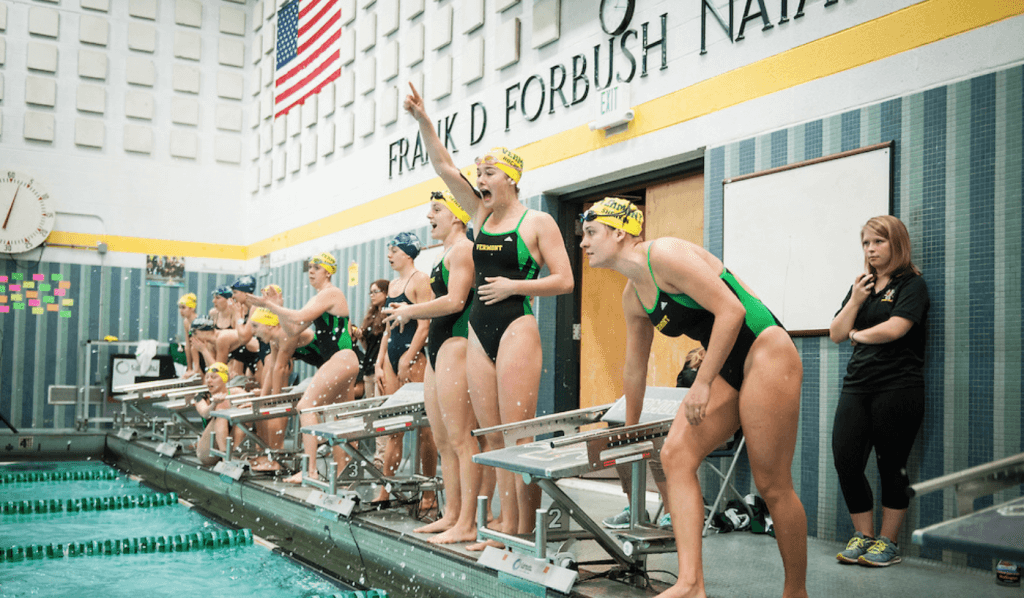
7 Ways to Become a Happier Swimmer (originally posted in 2016)
I am a strong believer in the saying that a happy swimmer is a fast swimmer. Every swimmer focuses on getting faster in the pool, but we often forgot to focus on making sure we are truly, genuinely happy.
It’s unreasonable to constantly be radiating nonstop happiness in such a physically and mentally demanding sport. Being happy takes an increased awareness of yourself and your surroundings, especially if you find that you’re unhappy.
Here are seven ways to become a happier, and faster, swimmer:
1. Stop comparing yourself to others.
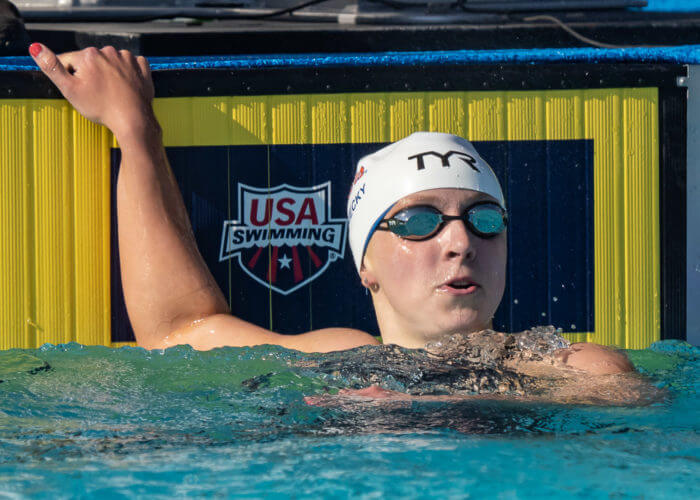
Photo Courtesy: Peter H. Bick
It’s hard—sometimes nearly impossible—not to compare yourself to others, but seriously, stop doing it. You can’t control what the person in the heat behind you or the lane over from you is doing; focus on you and what you can control. Comparing yourself to others is a toxic, never-ending cycle. By focusing on you and only you, you won’t let jealousy or envy win.
2. Stay present.
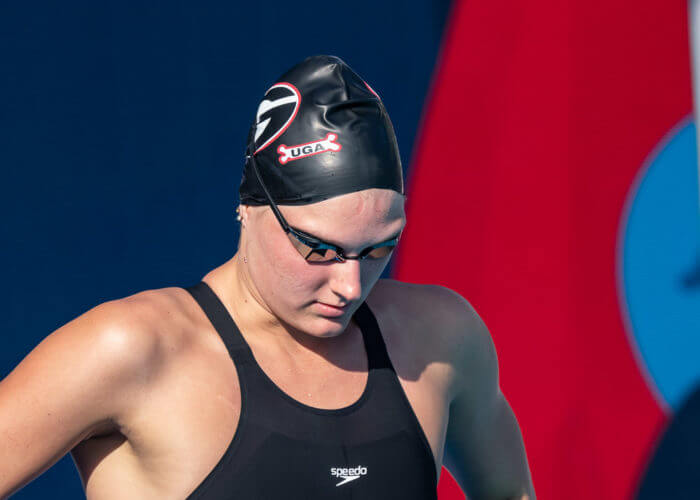
Photo Courtesy: Peter H. Bick
When you’re in practice, focus on the set you’re doing, not on the homework you’re going to do after or the exam you have the next day. During your race, don’t think about your next event. Staying present allows you to be both mentally and physically engaged, two crucial aspects of our sport. Being in the moment will allow you to better focus on what you’re doing.
3. Remember what you love about the sport.
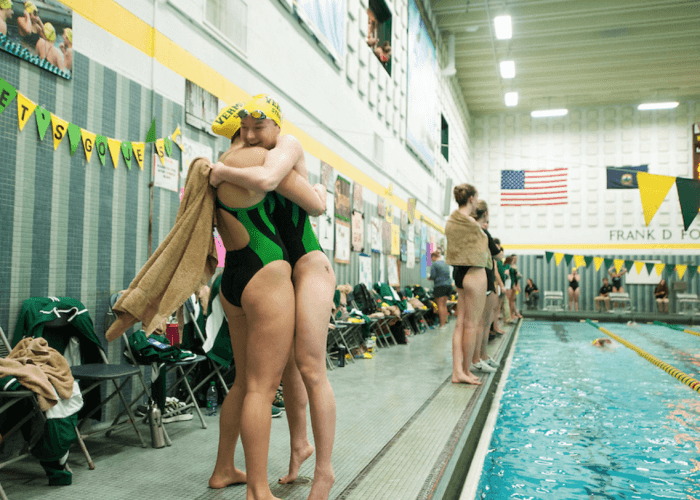
Photo Courtesy: Brian Jenkins-UVM Athletics
It’s easy to think about all the reasons why you hate the sport in the moment, especially when your alarm goes off or in the middle of a hard practice. Training trip is looming in the distance and Championships seem so far away, and it’s easy to get caught up in the negative. Take a step back and remember why you’re here. You’ve continued with the sport and have reached this level for one reason or another.
4. Always find at least one positive.
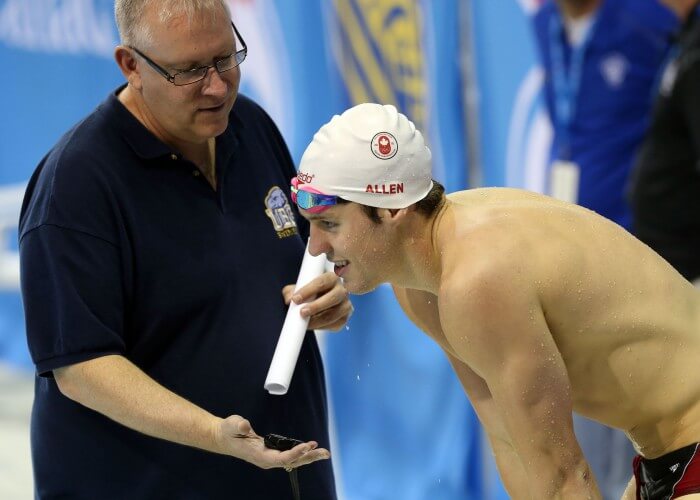
Photo Courtesy: Scott Grant/Swimming Canada
So you had a bad meet, or maybe you had an off practice. It stinks in the moment, but in the long run, positive takeaways from a bad meet or a bad practice have more value than ruminating on each aspect that went wrong. Maybe you didn’t breathe off of your walls, or maybe you swam a bit faster than last meet. Use each race and practice as a learning experience, and try to find at least one thing that went well.
5. Go to bed earlier.
Swimmers and divers love (and need) sleep. Proper rest and recovery is crucial for any athlete, but is often neglected due to our busy schedules. If you’re feeling sluggish in the weight room, pool, and in the classroom, make sleep more of a priority. Getting enough sleep will make you feel more alert and engaged, and in return, help you perform better.
6. Work on becoming mentally tough.
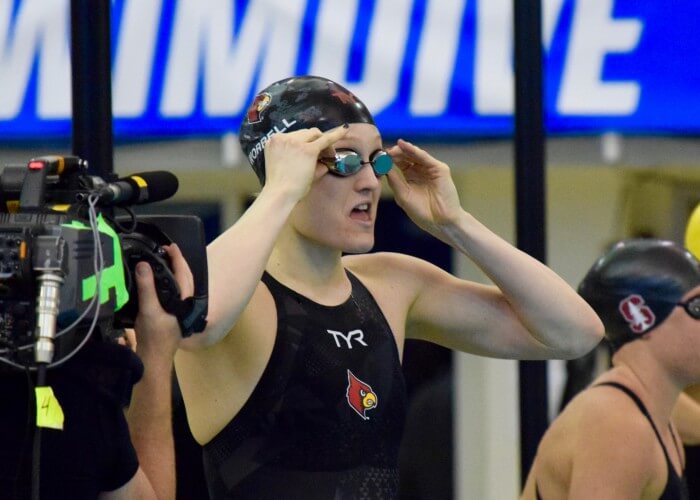
Photo Courtesy: Annie Grevers
Just as we train our bodies at every practice, we must train our minds to become mentally tough. The mental side of swimming is often underrated, but should never be forgotten. Honing in on your mindset during practice or a race can help you focus on the process, and putting more emphasis on the mental aspect of the sport will increase performance.
7. Set meaningful goals.

Photo Courtesy: Peter H. Bick
Set goals that are relevant and important to you, not to your coach, parents, or teammates. Smaller goals are also beneficial; recognizing that every race and every practice is a chance to get better. Don’t be afraid to share your goals or write them down, and there’s no better feeling than achieving your goals. Motivating goals make getting up early and all those hard practices just a little bit easier.
All commentaries are the opinion of the author and do not necessarily reflect the views of Swimming World Magazine nor its staff.




Step one come swim with me!